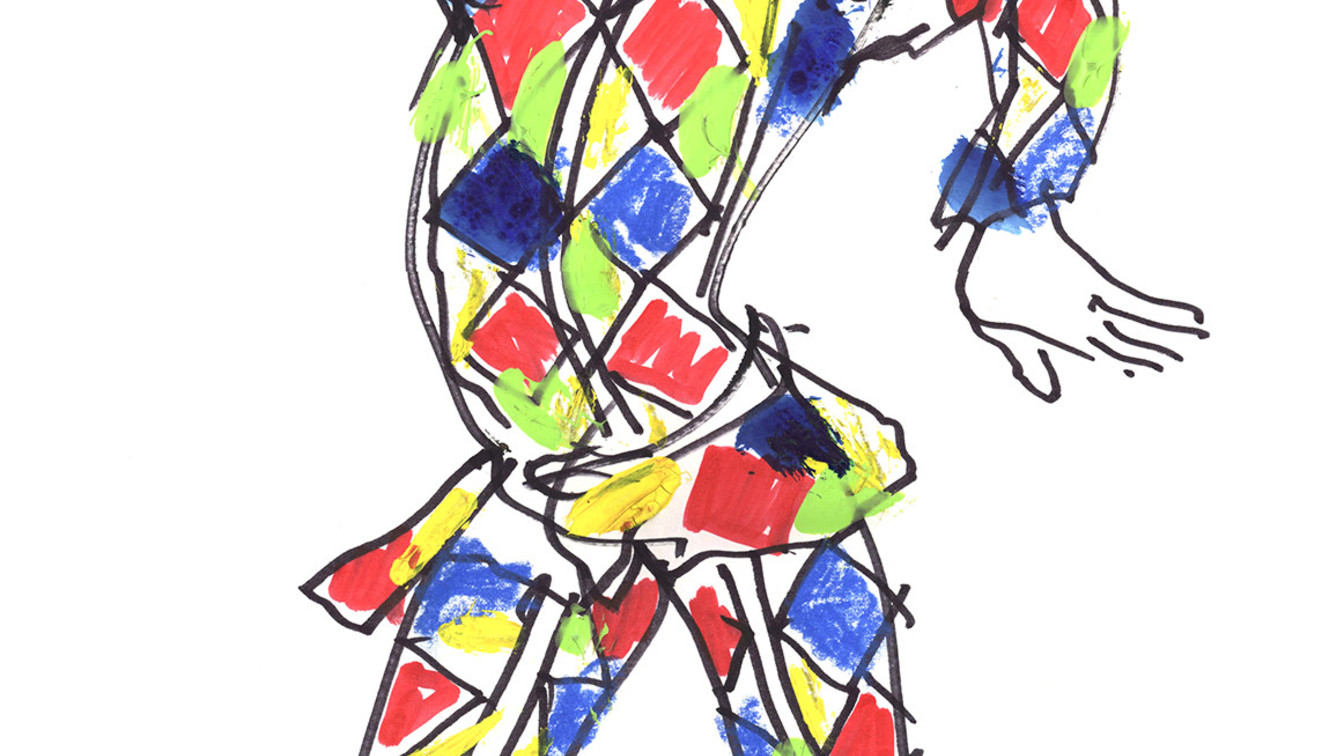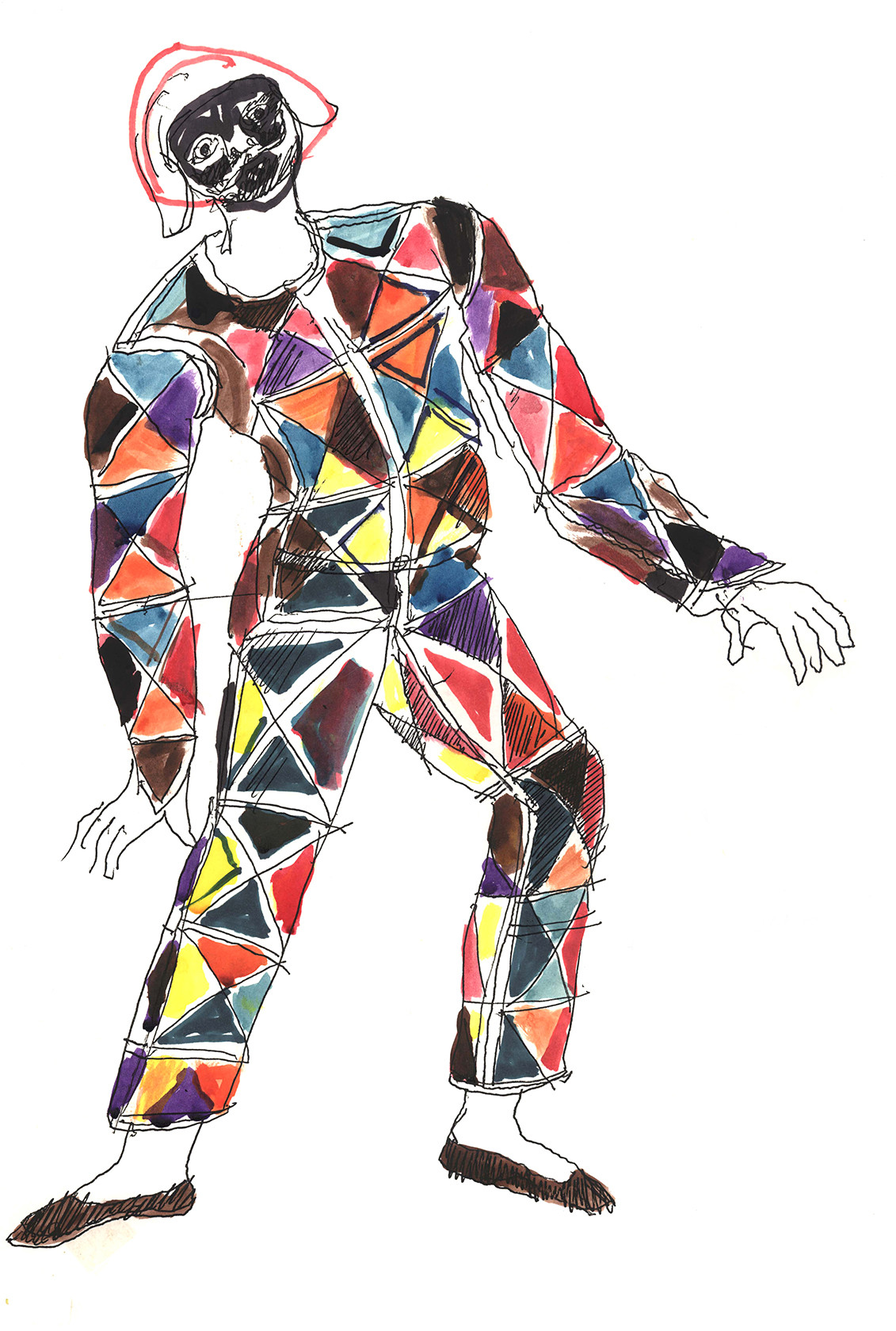

Harlequin is among us. He turns somersaults, winks,
yells, mutters. Gliding in his thin body.
He tries to fill his belly, which is always seized
by atavistic hunger. Harlequin is all of us.
‘The servant of two masters’, as conceived by Goldoni,
has become a person, not just a character
of the Commedia dell'Arte.
He owes his immanence to Giorgio Strehler.
First performance in 1947 in the Piccolo Teatro
that the director from Trieste founded with Paolo Grassi,
and the idea was to bring to the stalls not only
the ladies of Milan, but also the people unfamiliar
with the theater because they couldn't afford it.
Popular and cultured theater, ten editions
until Strehler died in 1997.
Then there have been a series of interpretations, by the actors
(Enrico Bonavera has now replaced Ferruccio Soleri,
who, at eighty-nine, has set aside his diamond
patterned costume first worn in 1960,
and before him there was Marcello Moretti),
up to the most recent, in December, for the centenary
of the director's birth.
75 years of Harlequin, the most-seen Italian show
in the world: over three thousand reruns, even in China.
Harlequin is among us because he embodies the ruses
each of us uses to get by.
He comes on and off the stage, ventures into the audience
taking off his mask, at the sides of the stage
he makes suggestions for stage effects.
Metatheatre that breaks down the fourth wall.
And history is made.
by Carlo Goldoni
drawings by Dario Fo
I'm sick of waiting; I can hold out no longer. With this master of mine there's not enough to eat, and the less there is the more I want it.
The town clock struck twelve half an hour ago, and my belly struck two hours ago at least. If I only knew where we were going to lodge! With my other masters the first thing they did, as soon as they came to a town, was to go to a tavern. This gentleman—Lord no! he leaves his trunks in the boat at the landing-stage, goes off to pay visits and forgets all about his poor servant. When they say we ought to serve our masters with love, they ought to tell the masters to have a little charity towards their servants.
Here's an inn. I've half a mind to go in and see if I could find something to tickle my teeth; but what if my master comes to look for me? His own fault; he ought to know better. I'll go in—but now I come to think of it, there's another little difficulty that I hadn't remembered; I haven't a penny. Oh poor Truffaldin’! Rather than be a servant, devil take me, I'd—what indeed? By the grace of Heaven there's nothing I can do.
Scene II. A street with the Brighella’s Inn. Truffaldino solus.
There's luck! There are many that look in vain for a master, and I have found two. What the devil am I to do? I cannot wait upon them both. No? Why not? Wouldn't it be a fine thing to wait upon both of them, earn two men's wages and eat and drink for two? 'Twould be a fine thing indeed, if neither of them found it out. And if they did? what then?
No matter! If one sends me away, I stay with the other. I swear I'll try it. If it last but a day, I'll try it. Whatever happens I shall have done a fine thing. Here goes. Let's go to the Post for both of 'em.
Scene II. Truffaldino solus.
Upon my word, I hope he is not going away. I want to see how my two jobs will work out. I'm on my mettle. This letter, now, which I have to take to my other master—I do not like to have to give it to him opened. I must try to fold it again. [Tries various awkward folds.]
And now it must be sealed. If I only knew how to do it! I have seen my grandmother sometimes seal letters with chewed bread. I'll try it. [Takes a piece of bread out of his pocket.] It's a pity to waste this little piece of bread, but still something must be done. [Chews a little bread to seal the letter and accidentally swallows it.] The devil! It has gone down. I must chew another bit. [Same business.]

No good; nature rebels. I'll try once more. [Chews again; would like to swallow the bread, but restrains himself and with great difficulty removes the bread from his mouth.] Ah, here it is; I'll seal the letter. [Seals the letter with the bread.] I think that looks quite well. I'm always a great man for doing things cleanly. Lord! I had forgotten the porter.
[Calls off] Friend, come hither; take the trunk on your shoulder.
Scene II. Truffaldino solus.